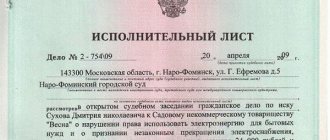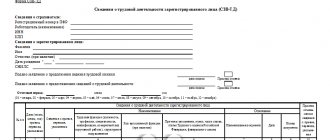From 04/06/2019, a new professional standard was introduced, which changed the requirements for the qualifications of accountants, and also adjusted the requirements for senior management specialists - chief accountants, financial directors, heads of departments, services, offices and accounting departments.
In this review, we will talk about where the use of categories is mandatory, what categories of accountants are currently in effect, and what are the grounds for assigning a specialist the level of accountant of the highest category.
What to do in connection with the introduction of the new Professional Standard?
The rules of the new professional standard for accountants, in fact, will not require any action from private capital companies - they form salaries and positions based on their own requirements and financial realities.
Enterprises and institutions that apply the professional standard (Article 195.3 of the Labor Code of the Russian Federation), in connection with innovations, must analyze and harmonize the professional competencies of existing specialists, and formulate a plan for retraining accountants and obtaining additional professional education for them to obtain the appropriate category.
Group E, or accounting consultants
As in the case of groups C and D, the level of education of persons who provide accounting services should be the highest. The length of service requirements are similar to those stated for chief accountants preparing and submitting consolidated statements. But at the same time, they are required to undergo full-fledged advanced training programs at least once every three years.
As for the responsibilities, consultants, company executives and commercial directors have many of them, and they are very diverse - from organizing and managing the main business processes of an enterprise to participating in advertising campaigns and studying judicial practice in the field of taxation.
How are assigned categories regulated?
The assignment of qualification categories to accounting specialists is regulated by the Professional Standard, approved by Order of the Ministry of Labor of the Russian Federation No. 103n dated February 21, 2019, which introduced a new professional standard for accountants, and which must be followed when certifying employees for category assignment.
The norms of the new Professional Standard establish which category an accountant belongs to, taking into account two main evaluation criteria - the specialist’s level of education and work experience in the profession.
Must know
An accountant must know:
- legislative acts, regulations, instructions, orders, guidelines, methodological and regulatory materials on organizing accounting of property, liabilities and business transactions and reporting
- forms and methods of accounting at the enterprise
- plan and correspondence of accounts
- organization of document flow in accounting areas
- the procedure for documenting and reflecting on accounting accounts transactions related to the movement of fixed assets, inventory and cash
- methods of economic analysis of economic and financial activities of an enterprise
- rules for operating computer equipment
- economics, labor organization and management
- market methods of management
- labor legislation
- labor safety rules and regulations
Accountant: categories, qualification requirements, main aspects of the new professional standard
The new professional standard uses the division of the labor functions of accountants into five groups:
- Group “A”: accounting – ordinary specialists (accountants with and without categories, qualification level 5);
- Group “B”: preparation of reporting (accounting, financial) - chief accountants and heads of accounting departments (skill level 6);
- Group “C”: reporting - chief accountants working in enterprises with branches (skill level 7);
- Group “D”: preparation of consolidated statements – specialists preparing consolidated statements (skill level 8);
- Group “E”: provision of accounting and reporting services – accounting consultants (qualification level 8).
According to the new Professional Standard, accounting specialists received the following job titles:
- Accountant - specialists with secondary vocational education, or non-core secondary education and additional vocational education (according to professional retraining programs);
- Accountant of the 2nd category are specialists with a similar level of education and experience in the position of “accountant” for at least one year;
- Accountant of the 1st category are specialists who have worked for at least 1 year in the position of “accountant of the 2nd category” and have the above level of education.
It should be noted that in the new Professional Standard, which defines the categories of accountants, the “leading accountant” is not designated as a specialist in the field of accounting. Enterprises that are guided by the new professional standard in their work should bring their staffing schedule and categories of specialists into line with it.
To figure out which accountant belongs to category 1, 2 or does not have one, you should analyze section II of the professional standard “Description of labor functions” and section 3.1 “Generalized labor function”, which details the types of work and requirements for qualifications and level of education for specialists specific categories.
According to the level of qualification, the chief accountant belongs to the sixth, seventh, and eighth categories, and there are no categories for him by analogy with ordinary accountants (first, second, etc.).
The use of professional standards, and therefore categorization for accountants, is advisory in nature, which gives business entities the right to independently decide whether to use such a professional gradation of specialists or not.
Job responsibilities
Performs work on maintaining accounting records of property, liabilities and business operations (accounting for fixed assets, inventory, production costs, sales of products, results of economic and financial activities, settlements with suppliers and customers, as well as for services provided, etc. .). Participates in the development and implementation of activities aimed at maintaining financial discipline and rational use of resources. Receives and controls primary documentation for the relevant areas of accounting and prepares them for accounting processing. Reflects on the accounting accounts transactions related to the movement of fixed assets, inventory and cash. Prepares reporting estimates of the cost of products (works, services), identifies sources of losses and unproductive costs, and prepares proposals for their prevention. Accrues and transfers taxes and fees to the federal, regional and local budgets, insurance contributions to state extra-budgetary social funds, payments to banking institutions, funds to finance capital investments, wages of workers and employees, other payments and payments, as well as deductions for material incentives for enterprise employees. Provides managers, creditors, investors, auditors and other users of financial statements with comparable and reliable accounting information in the relevant areas (areas) of accounting. Develops a working chart of accounts, forms of primary documents used for registration of business transactions for which standard forms are not provided, as well as forms of documents for internal accounting reporting, participates in determining the content of basic techniques and methods of accounting and technology for processing accounting information. Participates in conducting an economic analysis of the economic and financial activities of an enterprise based on accounting and reporting data in order to identify on-farm reserves, implement savings regimes and measures to improve document flow, in the development and implementation of progressive forms and methods of accounting based on the use of modern computer technology, in conducting inventories of cash and inventory items. Prepares data on the relevant areas of accounting for reporting, monitors the safety of accounting documents, draws them up in accordance with the established procedure for transfer to the archive. Performs work on the formation, maintenance and storage of a database of accounting information, makes changes to reference and regulatory information used in data processing. Participates in the formulation of the economic formulation of problems or their individual stages, solved with the help of computer technology, determines the possibility of using ready-made projects, algorithms, application software packages that allow the creation of economically sound systems for processing economic information.
Categories of accountants according to the Qualification Directory
Currently, public sector enterprises assign an accountant category in accordance with the Qualification Directory of Positions, approved. Resolution of the Ministry of Labor of Russia dated August 21, 1998 No. (as amended on March 27, 2018). For commercial organizations, the directory is advisory in nature. In the future, it is planned to gradually transition the public sector to the use of professional and industry standards, but this is a rather lengthy process.
According to the Qualification Handbook, in order to assign specialists the levels of “accountant”, “accountant of categories 1 and 2”, the following requirements must be met:
- Accountant - specialists with secondary vocational education (in an economic profile), without work experience requirements or with special training in accounting programs and at least 3 years of work experience in the field of accounting and control;
- Accountant of the 2nd category are specialists with a higher professional (economic) education, without requirements for work experience in their specialty, or secondary vocational education with at least 3 years of work experience in the position of “accountant”;
- Accountant of the 1st category are specialists with higher professional education (economics) and work experience of at least 3 years in the position of “accountant of the 2nd category”.
Problems of Ch. accountant of a small company (LLC, JSC)
Features of the work of a chief accountant in a small organization include:
- absolute interchangeability of accounting staff, the need to be able to do everything yourself;
- the possibility of reducing the volume of accounting work and reporting through the use of special regimes or the use of concessions provided by the SMP;
- little demand for accounting data for financial analysis purposes;
- no need for a large number of additional forms of internal reporting;
- lack of demand for audits;
- lack of close attention from inspection authorities, a relatively small number of requests for clarification.
Evaluation criteria for accountant certification
In order to determine the categories of budget accountants during certification, the following criteria are taken into account:
- the specialist has a specialized education;
- availability of specific practical skills;
- the work experience of the person being certified as an accountant;
- qualification characteristics regulated by the reference book.
Moreover, the requirements for education, skills and job responsibilities are provided for by the Unified Standards for the positions of managers, specialists and employees, approved by Resolution of the Ministry of Labor of the Russian Federation No. 37 of 08/21/1998 (as amended on 03/27/2018), wages for the assigned categories are established by the employer, and depend from the approved standards in a particular enterprise (institution).
History of the profession
The first accountants were known back in Ancient India - there they were mainly involved in accounting for agricultural activities and were called bookkeepers. Actually, the name of the profession “accountant” appeared in the 15th century with the light hand of Emperor Maximilian, at the same time the first book on accounting appeared - the treatise of the Italian Luca Pacioli “On Accounts and Records”, the first attempt to describe and streamline the functions of an accountant. In Russia, this specialty was introduced by decree of Peter the Great at the beginning of the 18th century.
Accountant: qualification categories and remuneration
Why do you need to determine which category a specialist belongs to? Exclusively in order to correctly, in accordance with current legislation, set the specialist’s wages.
Institutions with budgetary funding, as specified in Art. 144 of the Labor Code of the Russian Federation, they cannot charge wages below base rates and salaries established in accordance with the professional categories assigned to employees. Thus, in order to calculate an accountant’s salary, the calculations must be based on the qualification level assigned to him.
Let us note an important point that specialists often encounter in labor practice. If an accountant has previously been assigned the level of “Accountant of the 1st category”, the requirements for education and experience are confirmed by entries in the work book and a diploma; when subsequently employed in budgetary enterprises, for which the categorization system is mandatory, the specialist is accepted with this category. Downgrading of a category is allowed only based on the results of certification and after an appropriate decision has been made by the certification commission, documented.
Employee rights
An employee has the right to a full-fledged workplace, timely payment, compliance with all labor rights, and receipt of materials and documents necessary for work.
So, an assistant accountant is a hired specialist who reports to an accountant, chief accountant, or other authorized person.
The employee must have certain education and professional skills. His main responsibility is to support the activities of the accountant. The responsibilities of a specialist are determined by the provisions of the employment contract and job description.
The instructions are approved by the head of the enterprise and comply with all labor legislation requirements. The instructions specify all the functional responsibilities of the employee, as well as his rights and responsibilities.
An accountant is a responsible profession. The economic activity of an enterprise is vigilantly regulated by law. The first conductors between the financial affairs of a legal entity and the servants of state control are accountants. The daily routine work of quantitatively counting everything that is taken into account falls on their shoulders. The responsibilities of a materials accountant are even more complicated: each stud must be reflected in the balance sheet.









